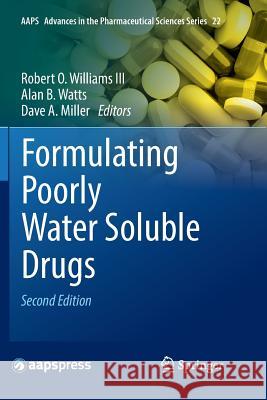Formulating Poorly Water Soluble Drugs » książka
topmenu
Formulating Poorly Water Soluble Drugs
ISBN-13: 9783319826189 / Angielski / Miękka / 2018 / 779 str.
Kategorie:
Kategorie BISAC:
Wydawca:
Springer
Seria wydawnicza:
Język:
Angielski
ISBN-13:
9783319826189
Rok wydania:
2018
Wydanie:
Softcover Repri
Ilość stron:
779
Waga:
1.08 kg
Wymiary:
23.39 x 15.6 x 4.01
Oprawa:
Miękka
Wolumenów:
01
Dodatkowe informacje:
Wydanie ilustrowane











